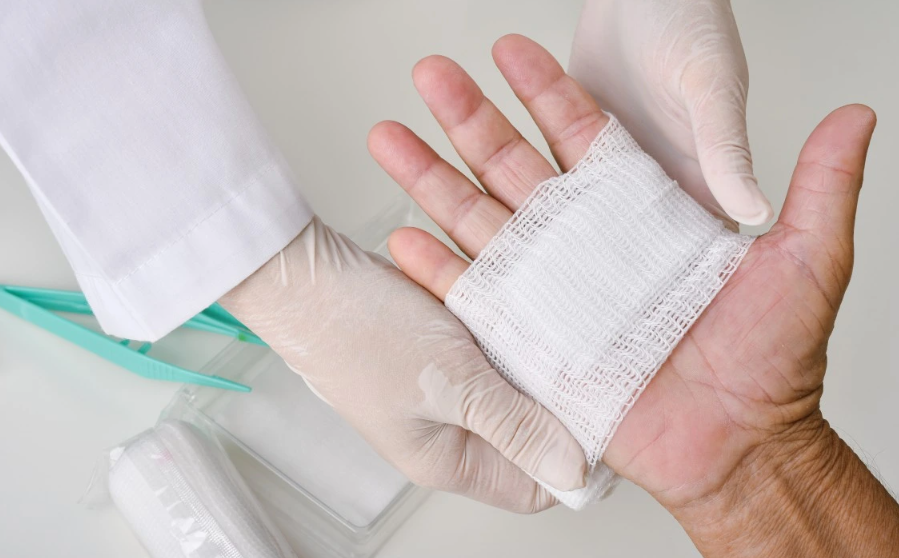Wound care is a critical aspect of healthcare that helps in the healing of injuries, cuts, ulcers, and other skin-related issues. Choosing the right wound care services, such as those provided by IRIS Medical, can make a significant difference in how quickly and effectively a wound heals. Whether it’s a minor injury or a chronic condition, having access to quality wound care can prevent complications and ensure a smooth recovery. In this blog post, we will discuss some key considerations when selecting the right wound care services for you or your loved ones.
1. Expertise and Qualifications of the Staff
The expertise of the medical staff is one of the most important factors to consider when choosing wound care services. You want to make sure that the healthcare professionals, including doctors, nurses, and specialists, are experienced in handling different types of wounds. Look for wound care centers that have staff with qualifications in areas like wound management, dermatology, and chronic wound treatment.
It’s important to choose a facility where the staff is knowledgeable about the latest wound care techniques and treatments. Proper care from skilled professionals can speed up healing and reduce the risk of infection or other complications.
2. Range of Services Offered
Different wounds require different treatments. Therefore, it is essential to choose a wound care service that offers a wide range of treatments and services. For example, some common wound care services include:
- Wound cleaning and dressing changes.
- Infection management and prevention.
- Debridement (removal of dead tissue).
- Compression therapy for circulation issues.
- Hyperbaric oxygen therapy for severe or chronic wounds.
Make sure the wound care provider you choose offers the specific treatments that are suited to your condition. This ensures that you receive the best possible care for your wound.
3. Personalized Treatment Plans
Every wound is unique, and so is every patient. Personalized care is key when it comes to wound healing. The right wound care service should take a tailored approach to your treatment. This means they assess your specific needs, the type of wound you have, and any underlying health conditions that may affect healing, such as diabetes or poor circulation.
Ask if the wound care provider will create a custom treatment plan that is designed just for you. Personalized care leads to better results and helps ensure that the wound heals properly.
4. Technology and Advanced Treatments
Advances in technology have made a huge impact on wound care treatments. From laser therapy to advanced dressings that promote faster healing, it’s important to choose a wound care service that uses up-to-date methods. Facilities that invest in modern technology are better equipped to handle complex or slow-healing wounds.
Some advanced treatments include negative pressure wound therapy (wound vac), skin grafts, and bio-engineered tissue. These techniques can significantly improve the healing process, especially for patients with chronic wounds.
5. Reputation and Reviews
When choosing wound care services, it’s a good idea to research the reputation of the provider. You can start by asking for recommendations from your doctor or healthcare provider. Additionally, check online reviews and testimonials from other patients who have used the service. This can give you valuable insight into the quality of care provided and the level of satisfaction from past patients.
Look for wound care centers that have a positive reputation for successful treatment outcomes, excellent patient care, and friendly, professional staff.
6. Accessibility and Convenience
The location of the wound care service is another key consideration. Regular appointments may be needed, especially if the wound requires frequent cleaning or dressing changes. Choosing a provider that is easily accessible can reduce the stress and time spent on travel.
Additionally, consider the availability of appointments, including whether they offer flexible scheduling to accommodate your needs. A provider that offers home care services for those unable to travel can also be a great option for convenience.
7. Insurance Coverage
Before committing to a wound care provider, it’s essential to check if your health insurance covers the services. Some advanced treatments or specialized services may not be fully covered, so it’s important to get a clear understanding of what will be included in your insurance plan.
Make sure to choose a wound care service that works with your insurance provider to avoid unexpected costs.
Conclusion
Choosing the right wound care services is essential to ensure proper healing and avoid complications. By considering factors such as the expertise of the staff, range of services offered, personalized care, and advanced technology, you can make an informed decision that will lead to better outcomes. Don’t forget to check the provider’s reputation, accessibility, and insurance coverage as well. With the right care, you or your loved one can heal quickly and safely, leading to a full recovery.

